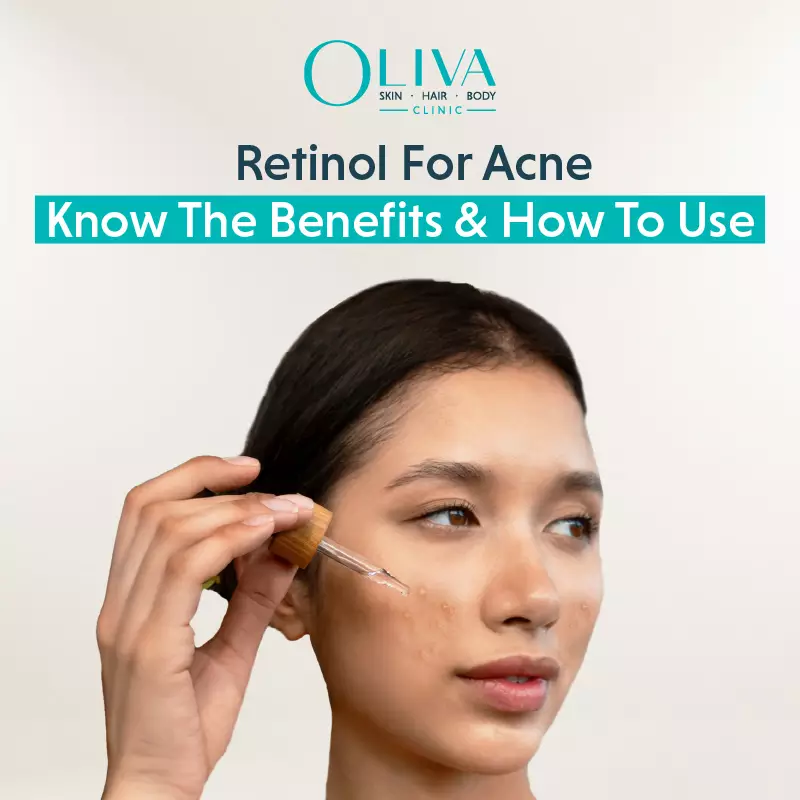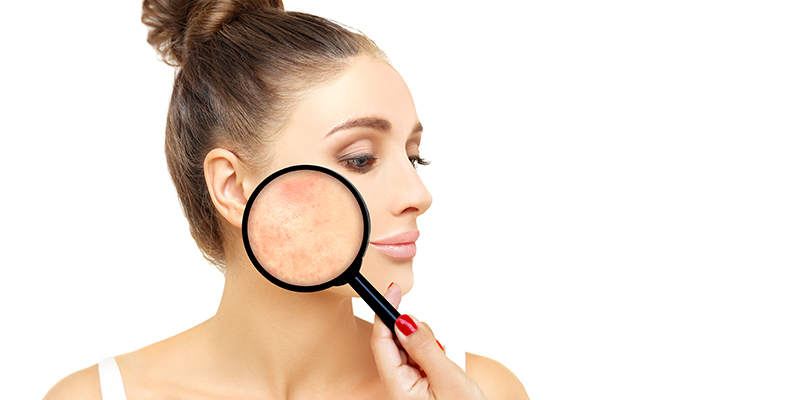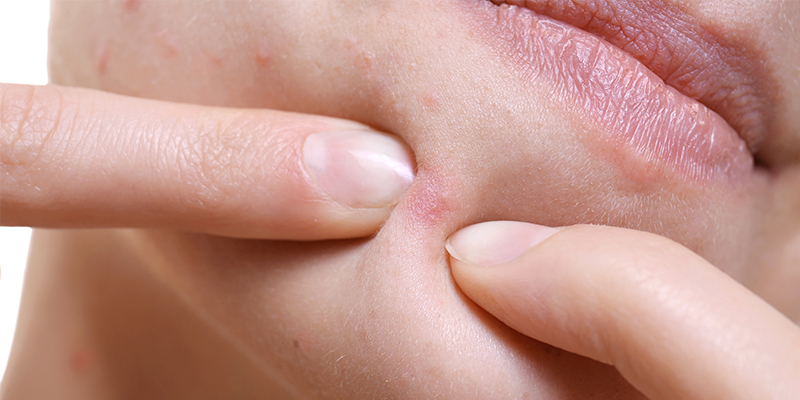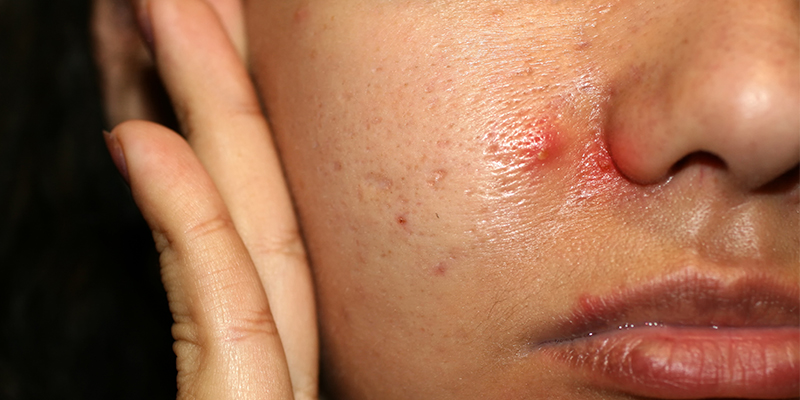In This Article
Can Exercise Cause Acne? Dermatologist Tips to Prevent Acne Caused By Exercise
You finally started working out to get healthier, and your skin starts to act up! You see breakouts, and it is frustrating! You may also be confused because exercise is supposed to give you clear skin, but that is not happening! We understand. Science shows that too much sweating from exercise can trigger acne in certain skin types. [1] Find out how exercise can trigger acne, tips to prevent it, when to seek medical help, and expert solutions for acne.
In This Article
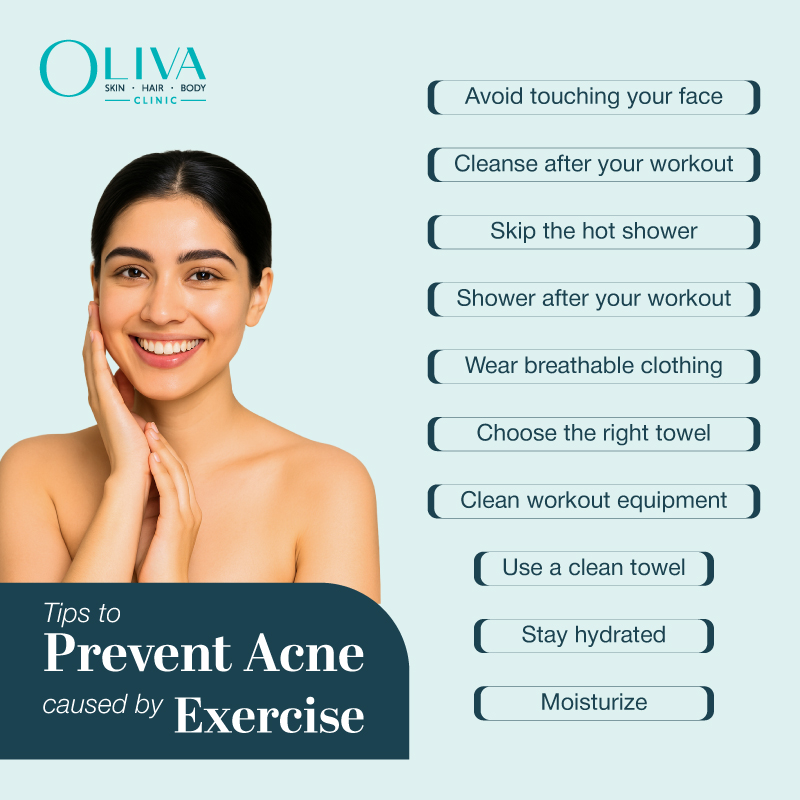
Does Exercise Reduce Or Cause Acne?
The answer to this question depends on the individual’s unique skin type and health status. Physical activity improves blood circulation, reduces stress, and aids in balancing your hormones, all of which can contribute to clear and healthy skin. On the other hand, exercising increases sweat and oil production, which can accumulate on the skin and mix with bacteria, dirt, and other build-up, leading to breakouts.
If you have acne-prone skin, maintaining proper personal and workout hygiene, keeping your hormones in check, and following a few other tips can help you manage it.
How Can Exercise Trigger Acne?
- Increased Sweating: When you sweat during exercise, it mixes with oil, bacteria, and dead skin cells, which can clog pores and cause breakouts.
- Build-up Of Oil And Dirt: If you don’t clean your face right after a workout session, it can create an environment for bacteria to thrive, triggering breakouts.
- Friction And Pressure: Tight clothing, especially tight straps, can cause acne due to friction. [2]
- Hormonal Changes: High-intensity workouts can increase cortisol and insulin levels, [3] which contribute to an increase in sebum production. It is important to rest and recover to keep your hormones in check.
- Shared Equipment: If you work out in a gym or share a space with others, they can likely transfer to your skin. Cleaning the equipment before and after you use it helps.
Tips To Prevent Acne Caused By Exercise
- Avoid Touching Your Face: If you have acne-prone skin, keep your hands away from your face, especially when exercising. That can add to the dirt, bacteria, and sweat.
- Cleanse Your Face After Workout: Use a gentle cleanser or micellar water (after consulting a dermatologist) immediately after working out to remove sweat, dirt, and bacteria.
- Shower After Your Workout: Taking a shower as soon as you can after workout can remove sweat and bacteria, which trigger acne. Especially important for those who are prone to body acne.
- Skip The Hot Shower: It can be tempting to take a hot, soothing shower after a workout, but it can dry your skin. The dryness triggers excess oil production, clogging pores and worsening your acne. Use lukewarm water.
- Avoid Makeup Usage: Comedogenic makeup products or the wrong ones can block pores, so it is best to avoid wearing makeup while working out.
- Wear Breathable Clothing: Opt for lightweight, sweat-wicking fabrics. They draw sweat away from the body towards the outer side and it evaporates quickly. You don’t have to worry about friction or sweat triggering breakouts.
- Moisturise Your Skin: A common belief is that people with oily, acne-prone skin should not use a moisturiser. It is essential to use a non-comedogenic, light-weight moisturiser.
- Use A Clean, Soft Towel: Pick the right towel and be gentle while you wipe your face. It reduces breakouts.
- Pull Back Your Hair: Tie your hair up while you work out so you can avoid sweat, oil, and hair products from coming into contact with your skin.
- Clean Workout Equipment: If you work out at a gym, we recommend that you wipe the gym gear before use. Ensure you don’t wipe it with your face towel. Keep them separate.
- Stay Hydrated: Drinking enough water flushes out toxins and keeps your skin clear and healthy.
When To Visit A Dermatologist?
If you are struggling with recurring, persistent acne despite maintaining a hygienic skincare routine, it is best to consult a dermatologist. It is likely that your acne is triggered by hormonal imbalance, fungal infections, or other underlying causes that need medical intervention. You should also consult a dermatologist if over-the-counter medications, home remedies (which we do not recommend) and other solutions have not been effective. They can worsen your acne. Also, it is important to treat your acne at the right time to prevent scarring.
How Oliva Clinics Can Help You With Persistent Acne?
At Oliva, every treatment plan is personalised to each client’s unique requirements. It starts with a 5-step V-discover process, which includes a body composition analysis, a dermascan, a trichoscan, and a dermatologist and nutritionist consultation – for a holistic understanding of your health. This analysis enables the medical team to identify the root cause of your acne and effectively treat it, ensuring the results last longer and preventing recurrence.
For example, if your exercise pattern is contributing to your acne flare-ups, they will recommend hormonal therapy, lifestyle changes, in-clinic procedures, and a skincare regimen that will collectively help with your acne.
Find out about the advanced, in-clinic treatment options available at Oliva Clinics performed by experienced dermatologists.
Expert Acne Solutions at Oliva Clinics
- Chemical Peels: Oliva’s dermatologists perform the chemical peel treatment using medically-approved, plant-based acids to exfoliate the top layers of the skin. [4]
It removes dead skin cells, dirt, excess oil, and other impurities, clears pores, minimises acne, and improves skin texture. They customise the peel strength and ingredients to every person’s unique skin type and the severity of acne. - Comedone Extraction: This treatment helps remove blackheads and whiteheads using medical-grade tools. If not addressed, they can progress to more severe forms of acne.
- Intralesional Injections: Dermatologists recommend this treatment for severe acne, such as cystic or nodular acne. They use corticosteroid injections into the lesions to reduce inflammation, pain, and swelling, and then the acne shrinks.
- Topical & Oral Medications: Oliva’s doctors recommend retinoids, benzoyl peroxide, antibiotics, hormonal medications, or/and isotretinoin based on your skin type, the severity of your acne and the underlying hormonal conditions.
Takeaway
We trust that you now understand the various factors that can contribute to breakouts you may be experiencing after physical activity. We encourage you to consult a dermatologist if your breakouts persist and get safe and advanced treatments that help treat the acne.
Frequently Asked Questions On Exercise & Acne
Yes, lack of exercise or a sedentary lifestyle can indirectly contribute to breakouts. Exercising four times a week is critical for good quality sleep, balanced hormones, and overall wellness.
Yes, exercise can indirectly worsen your hormonal acne. Intense workouts without enough recovery can increase cortisol, which disrupts hormones. Friction from tight clothes, sweat, and poor hygiene can clog pores. In some people, supplements or steroids can worsen it. Ensure you engage in sufficient physical activity each week, along with proper rest and recovery time, to maintain your health and prevent exacerbating your acne.
No, but maintaining proper hygiene and using breathable exercise wear is important. Sweat and friction can worsen breakouts.
You should first identify the root cause of acne and address it medically. Then, based on your hormonal status, you can opt for low-impact exercises or create an exercise routine in tune with your hormonal changes.





